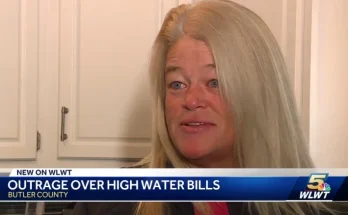It’s that time of year again, and ballot initiatives are all the rage. There are bound to be several dozen all over the country, but there are two in Colorado in particular that could have a direct impact on water utilities in that state, and perhaps downstream. Although they are still under some legal scrutiny as to form and such, Initiatives No. 3 and No. 45, called the “Public Trust Initiatives”, would amend the Colorado constitution to place all of the water rights in Colorado into a public trust. The full text of the initiatives can be viewed here.
To appreciate the potential impact of these proposed amendments is to understand the history of Colorado’s water laws. Suffice it to say that we couldn’t do that topic justice in one blog post – or several hundred. In Colorado, water law is different than in states where water is plentiful. In Colorado, water is a property right the transfer of which is based on the doctrine of prior appropriation. Over the course of the State’s history, water rights have been allocated through private transactions in a marketplace setting; each transaction usually triggers a judicial process to examine the beneficial use of the water being transferred, which is a process that can be enjoined by most anyone it seems with any standing in the case/transaction. It’s complicated, and it’s frustrating for many, it’s very expensive, but that’s how it works.
The supporters of the public trust initiatives believe the 100+ year -old system of prior appropriation has worked against the public’s interests. The proposed initiatives would replace the existing process with one that would enable the state to determine what uses of water are in the beneficial public good, and which ones are not. The doctrine would appear to apply to all such uses, whether water rights were adjudicated in the past already, or not. In other words, the amendments, if approved, would cause all existing water rights in the state to immediately fall under a new review guided by the public trust doctrine. The Colorado Water Congress, opposes the initiatives for this reason.
No doubt that reviewing all of the state’s existing water rights and potentially reallocating them could be extremely chaotic, especially in a state where water resources are scarce. The current legal structure is a major expense in an of itself. The direct legal costs are astounding, but if one considers the amount of time and resources consumed from all parties, the cost is even higher. The public trust doctrine is used in other states and in the examples that we’ve seen, it tends to work reasonably well and appears to require far fewer resources of our municipal utility clients. What you find in those states that use some kind of public trust doctrine is an approach to water utility management much more focused on the facilities (e.g. treatment, pipes, etc.) than on acquiring and maintaining water rights for the source of supply. It’s a focus toward infrastructure and service, rather than natural resource management.
There are elements of a public trust approach that we like, but the proposed initiatives are fatally flawed because they fail to provide a means to equitably transition from one structure to another. Colorado’s legal system evolved from water scarcity. Within that structure is a very competitive market that is constantly determining the value of water rights and thus informing decisions of how water is used. People have bought and sold those rights over the State’s long history under that structure. The proposed initiatives would place an immediate impairment on the rights currently owned (both public and private interests hold these rights, including farmers, cities, water districts, etc.) by inserting the State as the final arbiter on whether the rights are being used properly . The State would determine whether the rights were being used in the “public interest” but the initiatives would further provide legal standing to anyone to bring suit to challenge – at any time – whether current uses of water fit within that public interest. The uncertainty of all of this very likely reduce the value of existing water rights resulting in economic harm to all current owners. In exchange, the initiatives offer the current owners absolutely nothing in compensation.
Colorado’s water utilities stand to lose money and service capacity if these initiatives are approved by voters in November. At face value, these initiatives would, for the foreseeable future, make the already extremely difficult task of managing municipal water supplies even harder than it is today; rather than reducing the cost of municipal supply, the uncertainties introduced by the initiatives would likely force utilities to acquire even more water rights diverting limited capital dollars to acquiring the supplies rather than addressing our aging infrastructure and other key issues.
In short, the public trust doctrine is a viable model used in other states, but transitioning from Colorado’s current system to this one would require significant compensation to the owners of the rights (think billions) and would have to provide reasonable guarantees that current already-adjudicated uses would be exempt from the State’s recharacterization of the “public interest.” The proposed initiatives seem to intentionally bypass these issues.
Be Sociable, Share!



